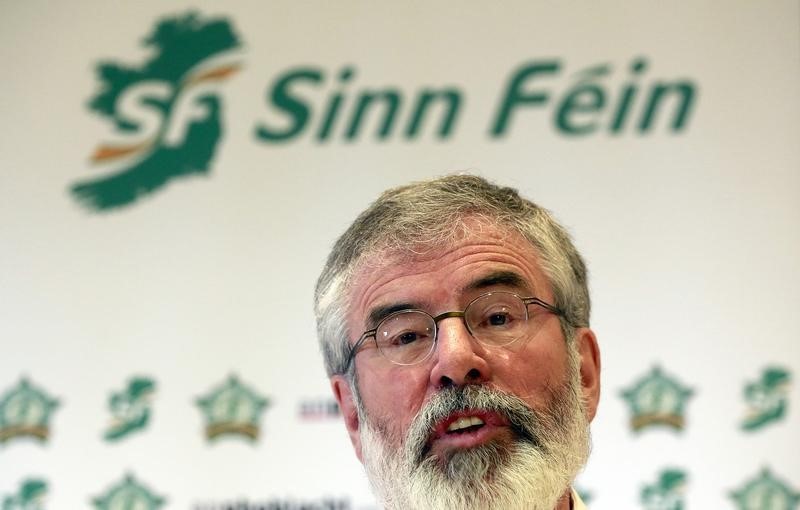DUBLIN (Reuters) - Support for Ireland's governing parties has returned to the highest level seen in over a year as support for left-wing challenger Sinn Fein fell over the past two months, a leading poll said on Sunday.
Prime Minister Enda Kenny has six months to call an election and his coalition government are pinning their hopes on voters starting to benefit from Europe's best performing economy that grew by seven percent in the first half of 2015.
Kenny's Fine Gael party is supported by 28 percent of voters, according to the Red C/Sunday Business Post poll, up from 25 percent in July. Junior coalition partner Labour was on 10 percent, up from 8 percent.
That put the parties back where they were in May, which had been the highest combined level since early 2014 before any credit for getting Ireland out of an international bailout was eroded by anger at the austerity measures applied to do so.
The two parties, who won a record majority in 2011 and want to be re-elected together, would still be 11 seats shy of the 80 needed to secure a parliamentary majority, according to Adrian Kavanagh, a politics lecturer at National University Ireland Maynooth who conducts constituency analysis on each poll.
Finance Minister Michael Noonan of Fine Gael has said the parties could form a government along with independents, whose support in the Red C poll is as high as Fine Gael's at 28 percent, three percentage points lower than July.
Fine Gael's nearest rival, the fellow centre-right Fianna Fail party, were unchanged on 18 percent.
However support for Sinn Fein, who are close to Greece's governing leftist Syriza party and running on a similar anti-austerity platform, fell to 16 percent from 18 percent and the party has fallen eight percentage points in a series of polls since briefly overtaking Fine Gael last December.
The dip coincided with a political crisis in Northern Ireland, where Sinn Fein share power, that "appears to have done them no favours" with voters in the Irish republic, according to Richard Colwell, chief executive of Red C.
"In order to re-gain lost ground, Sinn Fein need to move to settle matters in the North quickly, and re-focus voters' attention on the local issues they are fighting for on their behalf," Colwell said.

"The question then is if this re-focus will be enough to regain voters, with the backdrop of an increasingly positive economic outlook, and an electorate that broadly believes that the country is currently on the right track."